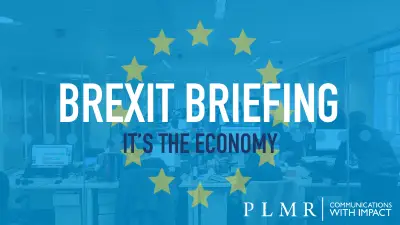There is a school of political science which maintains that economic performance is the key to predicting most election outcomes. While I personally tend to look at other factors too, there is no denying that the economy plays a part in election outcomes – just ask Gordon Brown, who has blamed the recession for his loss in the 2010 General Election, despite his strong record as Chancellor. Or ask George Bush Senior, who lost the US Presidency in 1992 during a recession despite his popular handling of the first Gulf War.
The next General Election in the UK will probably (though not certainly) be after we have left the EU, and after the transition period is over. Whether it is Theresa May or a different MP leading the Tories in to that election, it is likely that the state of the economy will be at least as important as any policy issues.
So what kind of economy can we expect to see in, say, 2021 or 2022? A lot will depend on the Brexit decisions that the government is currently making. It is reported that hard Brexit supporters in Parliament are urging the Prime Minister not to agree to any form of Customs Union with the European Union.
Conventional economic wisdom suggests that lacking a customs agreement with our large trading neighbours will be damaging to the economy, and this might swing the next election towards a Labour victory. The Labour Party is advocating a new customs union agreement with the EU – a sensible policy that can only help burnish their economic management credentials.
But conventional economic wisdom has not always held water over the last two years. Several independent, non-partisan economic studies predicted a sharp downturn in the UK economy after the 2016 referendum, which simply did not materialise. Various explanations are given for this failure to accurately predict the economic response to leaving the EU. Some economists say the downturn will come only when we have actually left the EU (March 2019) or when the transition period is over (at the end of 2020).
Others say that the UK’s economic performance is contingent on non-EU factors – the flexibility of our labour market, the stability of our legal system or our connectivity to the rest of the world economy, including with Asia and the Americas.
The government’s own statistics and predictions show a positive economic picture. Wage growth is now above inflation, and the employment rate is near a record high. GDP growth is predicted to be between 1 and 1.5 percent for the next three years – more than enough to ward off a recession.
Then again, a shock to the economy could come from any number of sources outside of the government’s control – not only a no-deal Brexit, but a bubble economy bursting in Trump’s America or an oil supply crisis in the Middle East could easily tip the UK economy into a downturn. If that happens around the time of a General Election, the odds of a Labour Party victory will go up substantially.




